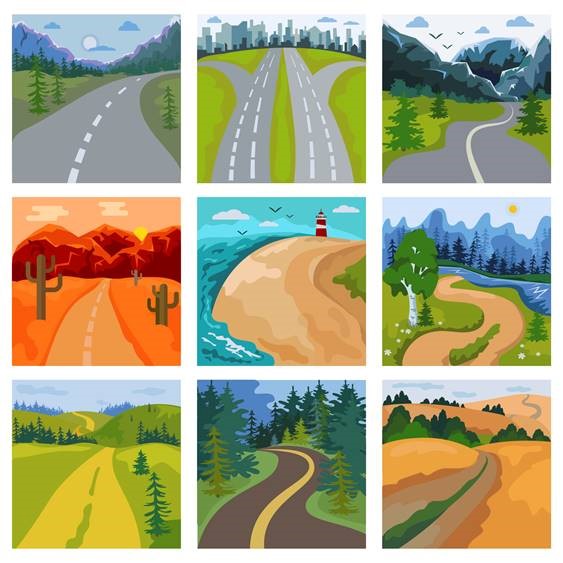



George W. Hatcher is a candidate to become one of the first residents of the planet Mars. His Baha’i Faith factored into his decision to volunteer for a one-way trip to another planet. Hatcher, an aerospace engineer, worked for NASA at the Kennedy Space Center in Cape Canaveral, Florida, for 13 years. Here is his story:
I grew up in rural Tennessee on the family farm 30 miles south of Nashville. When I was a child, I would play for hours in my attic bedroom with a spaceman LEGO set. By the time I was 3, I told my mother I wanted to be an astronaut.
My parents are devout Protestants. We attended the local Church of Christ three times a week. I became disenchanted with Sunday school when my logical questions were either dismissed or ignored.
I was confused and conflicted, wanting to be an obedient son, but unable to commit to something that made no sense to me and that I didn’t truly believe.
By sixth grade, my love of airplanes and space showed no signs of letting up, so my parents sent me to Space Camp in Huntsville, Alabama. A goal crystallized in my mind. I made a sign: “George Hatcher’s goal: to be the first person on Mars.” I hung it on my clothes rack and read it every morning.


When I was 15, a new teacher named Mark Baker arrived at our rural, mostly white and Christian high school. With his long hair, engaging style, love of history and literature, and time spent teaching on Indian reservations, he was more than a bit of an iconoclast. Mr. Baker became my favorite teacher and a lifelong friend.
He turned our 10th-grade English class into a survey of world religions. My entire worldview was upended. My life had been so sheltered and homogeneous up to that point that I was convinced that Judaism (which I only knew of through Old Testament references) was largely defunct and that Christianity was the only religion in the world. Imagine my surprise to learn of the existence of Hinduism, Buddhism, Jainism, Taoism, Sikhism and Islam.
That same year, one of my best friends in high school, Lacey, became a Baha’i. That was the first time I heard the word, but I never asked her anything about it.
My parents provided me with opportunities to explore my newfound hunger for philosophical and religious knowledge. They paid my tuition to the Youth Theology Institute at Emory University in summer 1996 and the E Pluribus Unum program at American University in 1997. I made friends from other religious backgrounds and gained crucial exposure to new and inclusive ideas.
I had enrolled in four years of JROTC in high school, eventually rising to second-in-command of our student battalion, in preparation for what I thought would be my path to NASA’s astronaut corps — becoming a military pilot.
I was offered full college scholarships by the Army, Navy and Air Force, but turned them all down when I learned none of them would train me to fly due to my nearsightedness. Instead, I accepted an in-state scholarship at the University of Tennessee, Knoxville to study aerospace engineering. If I couldn’t fly aircraft, I was going to learn how they worked.
I stuck around for a master’s in aerospace engineering, and after seven years in Knoxville, I was incredibly fortunate to get a job with NASA at the Kennedy Space Center.
Shortly after I settled into Florida life, my friend Lacey made a trip to Orlando for a Baha’i conference and invited me to join some of her Baha’i friends for dinner. Conversation was fluid and easy. I was intrigued by the high level of discourse.
When the topic turned to philosophy, I began to share a few ideas I’d gathered over nearly a decade of search. Midway through each sentence, someone would finish the thought with astounding clarity and in language I couldn’t hope to aspire to. “‘Abdu’l-Baha said that,” they’d add. Or, “That’s a quote from Baha’u’llah.”
I spent the next two years investigating the Baha’i Faith, trying to find the catch.
Then I was invited to join a Baha’i study circle. [A video glimpse at Baha’i study circles] Gradually, almost imperceptibly to me, my heart began to thaw.
I was on my way to visit friends in Chicago when my plane was delayed by snow. I had several hours to kill at the airport and had some Baha’i books in my bag. I remember as a kid wishing I could sit down and have a conversation with Jesus. As I read the Seven Valleys, I felt like I was having a conversation with Baha’u’llah. I would read a page, and a question would arise in my mind. On the next page, the question would be answered. I alternated between laughing out loud and crying.
By the time I finished the book it was clear. I was a Baha’i.
Growing up in a society obsessed with conflict between science and religion, I had been led to a religion that held science to be equally as important, and even yielded to science on material matters.
I champion the independent investigation of truth. There is no escape from the great questions of life; we are forced to face them. All of my major questions had clear, logical answers.
Baha’u’llah has removed my overwhelming fear of death. I do not worry that my children or I will die “too soon.” I can speak with my parents about religion without conflict and with the love of Christ in my heart.
The Faith has put the events of my life into perspective. It has provided me with a standard of conduct to strive for. I know that there are spiritual solutions to the social ills of humanity, and am blessed with knowledge of a framework for action that will bring about change.
As we were getting to know each other, I told my wife Lorenia (who is also a Baha’i) that if given the chance I would gladly risk my life to travel in space. She agreed to marry me even with such an outlandish dream, as long as we had kids before I left Earth. Lorenia and I were married in 2008. Our family has since grown to include three children.
In engineering school, I had heard about proposals for one-way trips to Mars but always dismissed them as crazy. As time passed, however, I learned that because of the expense, complexity and dangers of a return, one-way trips had vastly lower risk and up-front costs. The catch is that space travelers would have to be willing to live the rest of their lives on Mars.
The prospect of a one-way trip to Mars became real in 2013 when Mars One announced plans to settle the planet by groups of four and opened the door to anyone over 18 in good health. More than 200,000 people worldwide began the application process; around 2,700 people completed their applications and submitted the required fee. As of September 2018, I’m one of 100 candidates remaining. The final selection round is designed to whittle the number of hopefuls to 24 or fewer before offering them full-time employment with Mars One to begin training. This selection round is currently awaiting funding.
Had I not been a Baha’i in 2013, with the perspective that this life is but the blink of an eye, that my soul will ultimately be reunited with my family, that I can intercede on their behalf if I die, and with the assurance that I have been created to help carry forward an ever-advancing civilization, I probably would not have applied for Mars One.
No one knows when they will die or under what circumstances. I would rather die pursuing a goal I have worked toward my entire life — while advancing humanity’s ability to survive long term away from the Earth — than to spend the rest of my life in relative comfort.
The Baha’i Faith has given me an assurance and happiness that cannot be taken away, no matter what may befall me. Becoming a Baha’i is the single most important thing that has ever happened to me. It is my bedrock identity and the framework of my reality.


![]()
![]()
Whether you are exploring the Bahá'í Faith or looking to become an active member, there are various ways you can connect with our community.
Please ensure that all the Required Fields* are completed before submitting.